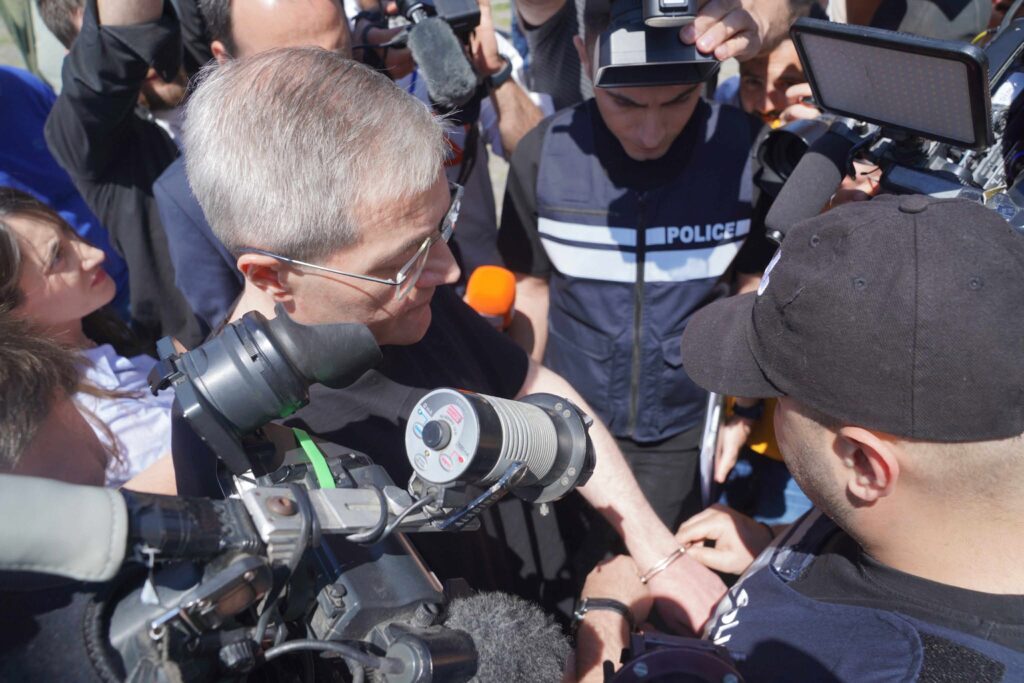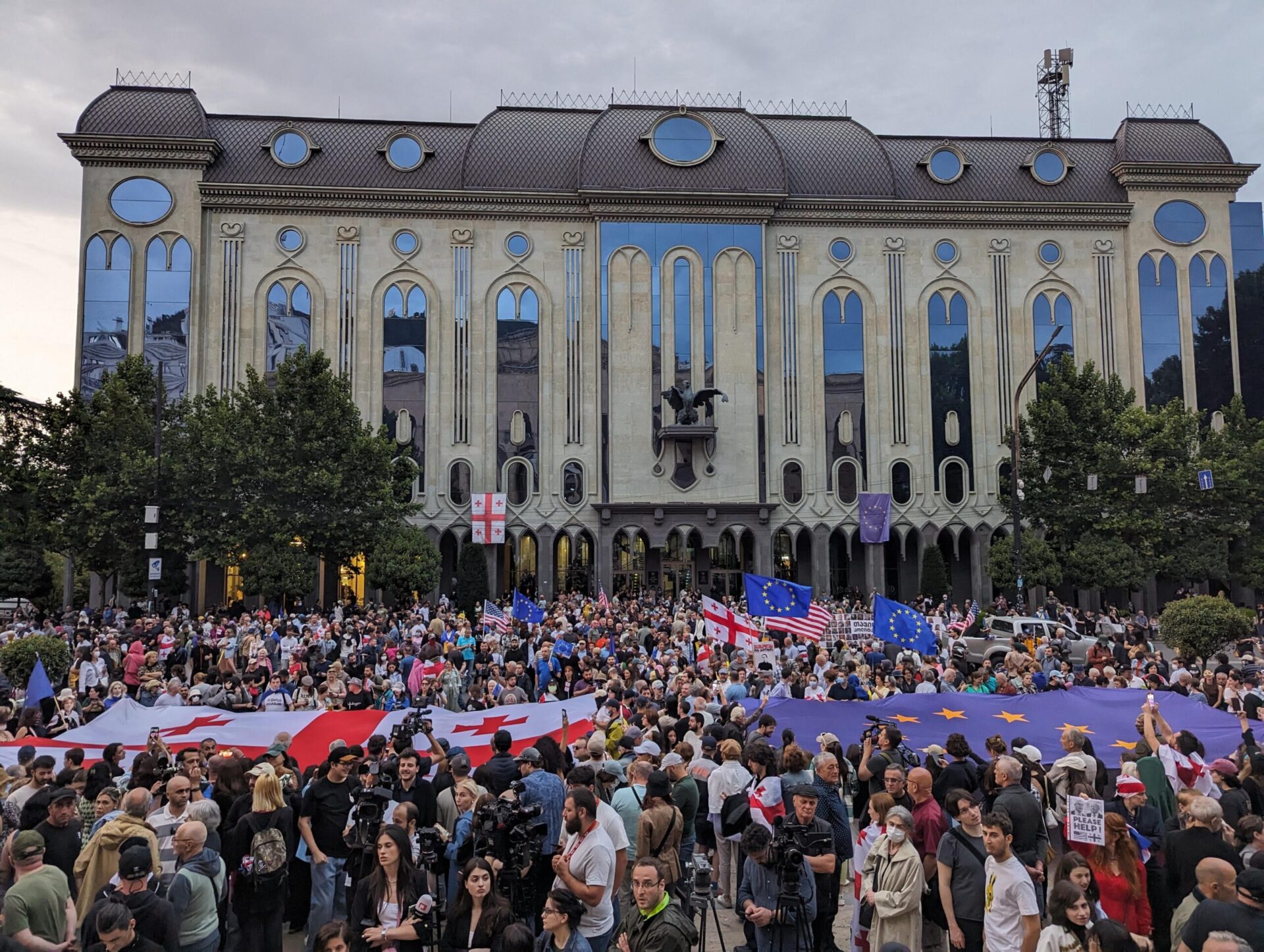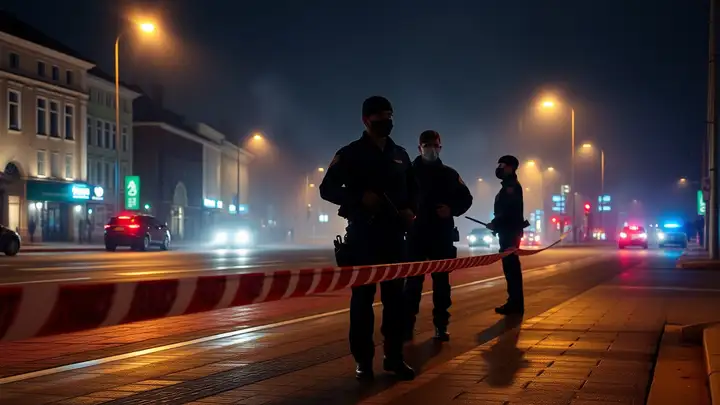
Saakashvili Continues His Political Struggle in Georgia and Ukraine
Saakashvili Continues His Political Struggle in Georgia and Ukraine
On March 24, the United National Movement (UNM), Georgia’s former ruling party, held a party congress at which it approved Grigol Vashadze as its new chairperson (Civil.ge March 25). This does not mean, however, that UNM removed former Georgian president Mikhail Saakashvili, who founded the party in 2001, from his position as unofficial chair. Saakashvili has informally headed the party since 2015, when he lost his Georgian citizenship but attained Ukrainian citizenship (Georgia Today, December 4, 2015). Despite not having an official role, throughout this period the former president nevertheless remained the de facto leader of UNM and continued to make important decisions for the party.
Saakashvili himself declared, at the party congress, that UNM should elect an official chairperson. The former president explained that the party is preparing for decisive parliamentary elections in 2020 and needs a formal leader to make decisions on the ground. Saakashvili threw his support behind Vashadze, declaring that the latter ran “a very strong [presidential election] campaign” at the end of last year against his rival, Salome Zurabishvili, who was supported by the ruling party Georgian Dream (GD) (Facebook.com/powerisinunity, Kommersant, March 24, 2019; see EDM, October 31, 2018).
For the first time in the history of Georgia, voting was held via an electronic ballot. The 366 delegates of the UNM party congress voted almost unanimously for Vashadze. Saakashvili, meanwhile, retained his status as “honorary chairman of the party.” The delegates also reelected Member of Parliament (MP) Nika Melia as chair of the UNM Political Council, and MP Koba Nakopia as the party’s executive secretary.
The most important part of the congress was the speech given by Saakashvili, who spoke live via video link, from the United States. The former president made clear that he considers himself a regional politician and intends to fight for the development of democracy not only in Georgia but also in Ukraine (Facebook.com/powerisinunity, Kommersant, March 24).
In his remarks, Saakashvili stated, “The rule of the oligarchs leads our countries to disaster,” referring to the chairperson of the ruling GD party, billionaire Bidzina Ivanishvili, as well as the president of Ukraine, billionaire Petro Poroshenko. Saakashvili said that, if Georgian Dream had not won the parliamentary elections in October 2012, “with the help of Russian money belonging to oligarch Ivanishvili,” then Georgia would have become a Caucasian Singapore. Furthermore, he declared, “They [regional oligarchs] steal elections, buy votes from impoverished people… [W]e must break these chains sometime—in a week, a month or a year. My heart is with you, and I will definitely be back” (Facebook.com/powerisinunity, March 24).
The results of the October 2016 Georgian parliamentary elections—in which UNM lost 19 seats while GD secured a supermajority in the legislature—ignited a stormy discussion within Saakashvili’s party about the need to elect a new chairperson. At the time, Saakashvili opposed the measure, and many leaders subsequently left the political faction. So what caused the former Georgian president to suddenly reverse his position?
In a March 27 interview with this author, political analyst George Khukhashvili praised Saakashvili’s decision as “strategically correct.” According to Khukashvili, “He [Saakashvili] remains an informal leader; and with the new chairman, UNM will have an improved chance to successfully perform in the elections in 2020. Saakashvili acted as a good manager.”
Yet, critics contend that Saakashvili nevertheless remains the real leader of his party. The former head of the State Chancellery of Georgia, publicist Petre Mamradze, emphasized, “Grigol Vashadze only formally holds the chairmanship of the party. In fact, all important decisions will be made by Saakashvili” (Author’s interview, March 27).
Even as Saakashvili continues to try to play an influential role in Georgian politics, he has retained his interest in the Ukrainian political situation. During his speech to the UNM congress, Saakashvili said that he had agreed to take the post of governor of Ukraine’s Odesa region, in 2015, to “save the [regional capital city of Odesa, a strategic Black Sea port] from Russian occupation.” He stated, “My governorship was salvation for Odesa, for Ukraine and for Georgia because of the strategic importance of this Ukrainian city for the entire Black Sea region.”
In an interview with Ukrainian journalist Dmitry Gordon, earlier this month, Saakashvili announced that, immediately after the presidential elections in Ukraine (scheduled for March 31), he would return to Kyiv, from where he was deported last February. In the interview, he proclaimed, “On April 1, 2019, I am going to land in Borispol (Kyiv airport)… I have this airline ticket because I am sure that Poroshenko will not pass to the second round [of presidential voting]… and as soon as he does not pass to the second round, I am more than sure that not a single border guard will want to carry out his order to prevent me from entering Ukraine” (Gordonua.com, March 12).
In Georgia, Saakashvili was sentenced, in absentia, in two separate cases to three and six years in prison for abuse of power (Georgian Journal, January 5, 2018). But he continues to demonstrate his determination and ability to remain involved in both Georgian and Ukrainian politics. Professor Ghia Nodia of Ilia State University believes that Saakashvili “has long been trying to fight on two fronts at once, but his position in Ukraine is much weaker than in Georgia.” Nodia added, “However, apparently, he thinks differently and will continue these attempts” (Author’s interview, March 26).
Saakashvili publicly verified his plans to return to Kyiv by displaying his plane ticket on Ukrainian television. At the same time, however, his expectation to continue to participate in Georgian politics is indisputable—particularly since his wife, Sandra Elisabeth Roelofs, was recently nominated to run for the post of mayor of Zugdidi. This city of over 42,000 people is uniquely important for Georgia because it is located only four kilometers from the line of Russian occupation in Abkhazia (Livepress.ge March, 22)
According to polls, Roelofs is incredibly popular in Zugdidi and can beat any candidate from the ruling party GD. The victory of the former first lady in this city could be a triumph for former president Saakashvili himself and symbolize his continued influence in the country he left, back in 2013.


